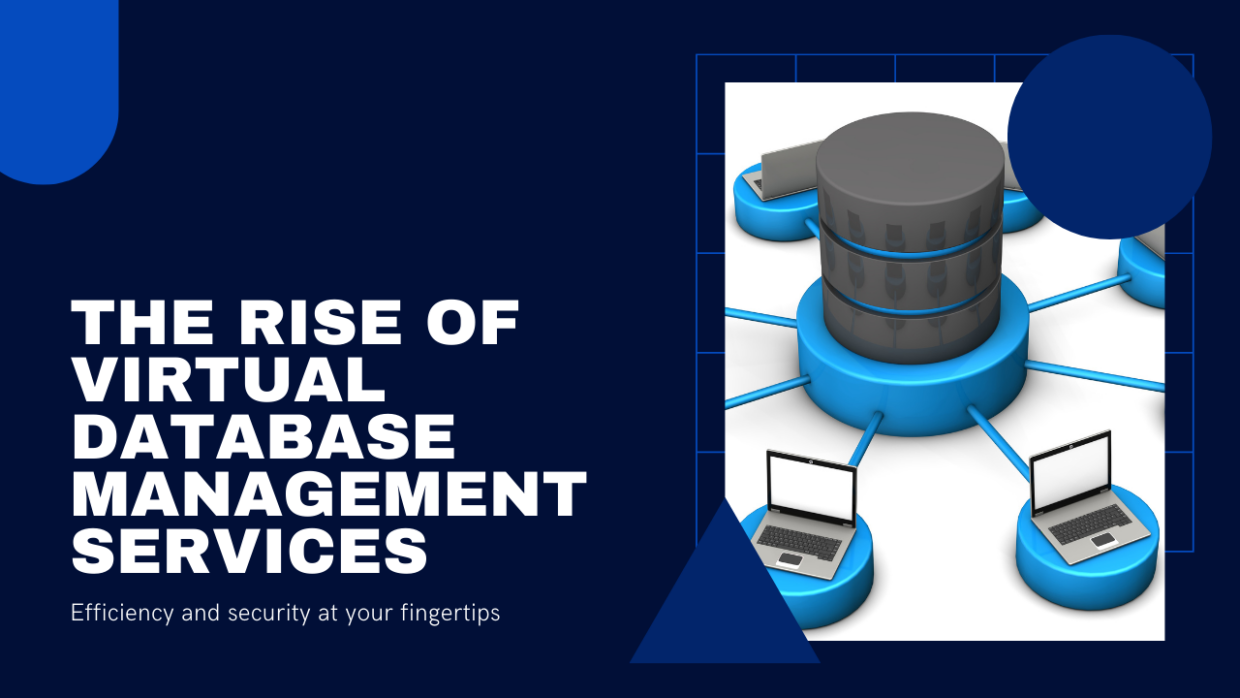Elevate Your Data Management: The Power of Virtual Database Services
In today's data-driven world, efficient and secure database management is crucial for businesses of all sizes. However, managing databases in-house can be time-consuming, resource-intensive, and complex. This is where virtual database management services (VDBMS) emerge as a valuable solution, offering a scalable, cost-effective, and secure way to handle your data needs.
The Challenges of In-House Database Management
Managing databases in-house can present several challenges:
- Limited Resources: Smaller businesses may lack the expertise or budget to dedicate to database administration.
- Scalability Issues: As your business grows, your database needs may outpace your in-house capabilities.
- Security Concerns: Protecting sensitive data from cyber threats requires specialized knowledge and resources.
- Cost: Managing databases in-house can be expensive due to hardware, software, and personnel costs.
The Benefits of Virtual Database Management Services
By outsourcing database management to a virtual database service provider, you can:
- Reduce Costs: Avoid the upfront and ongoing costs associated with managing databases in-house.
- Improve Scalability: Easily scale your database resources up or down to meet changing demands.
- Enhance Security: Benefit from state-of-the-art security measures and compliance with industry standards.
- Free Up Resources: Focus on core business activities while experts handle your database management.
- Access Specialized Expertise: Leverage the knowledge and experience of database professionals.
Key Features of Virtual Database Management Services
Virtual database management services typically offer the following features:
- Database Hosting: Store your data in a secure, cloud-based environment.
- Database Administration: Manage database setup, configuration, and maintenance.
- Data Backup and Recovery: Implement robust backup and recovery procedures to protect your data.
- Security and Compliance: Adhere to industry standards such as GDPR, HIPAA, and PCI DSS.
- Performance Optimization: Monitor database performance and optimize for efficiency.
- Data Migration: Migrate your existing database to the virtual database platform.
- Integration with Other Applications: Integrate your database with other business applications and tools.
Types of Virtual Database Management Services
Virtual database management services can be categorized based on the type of database they support:
- Relational Databases: Manage structured data in tables, rows, and columns (e.g., MySQL, PostgreSQL, Oracle).
- NoSQL Databases: Handle unstructured or semi-structured data (e.g., MongoDB, Cassandra, Redis).
- Data Warehouses: Store and manage large datasets for analytics and reporting.
Selecting the Right Virtual Database Management Service
When choosing a virtual database management service, consider the following factors:
- Database Type: Ensure the service supports the type of database you use.
- Scalability: Evaluate the provider's ability to handle your growing data needs.
- Security and Compliance: Verify that the service adheres to relevant industry standards.
- Performance: Assess the provider's track record for delivering high-performance database services.
- Integration Capabilities: Ensure the service can integrate with your existing business applications.
- Pricing and Contracts: Compare pricing models and contract terms to find the best value for your business.
The Future of Database Management: Cloud-Based Solutions
Cloud-based virtual database management services are becoming increasingly popular due to their flexibility, scalability, and cost-effectiveness. As technology continues to advance, we can expect to see further innovations in database management, including:
- Serverless Databases: Eliminating the need for infrastructure management.
- Enhanced Security Features: Advanced security measures to protect against cyber threats.
By outsourcing your database management to a virtual database service provider, you can free up your resources, improve efficiency, and ensure the security of your valuable data. With the right partner, you can unlock the full potential of your data and drive business growth.
Ready to elevate your data management? Explore the world of virtual database management services and find the perfect solution for your business.
BUCKET SYSTEM vs. Employee
Sure, you could hire an ordinary employee to help grow your business, but do you really have enough small tasks to fill up 40 hours per week or even 20 hours per week every single week? If not, that employee will be spending downtime on your dime.
TaskBullet has eliminated this problem with what we call the BUCKET SYSTEM. Your remote employee will clock in when you need them and clock out when you don't. (Learn how it works here) With a remote personal assistant, you pay for the hours you need and nothing more. You'll save money on not having to provide employee benefits, office space, office supplies (computer, desk, coffee, etc.); oh, and did I mention downtime?
Your remote personal assistant will come with his or her own supplies, a strong education (TaskBullet virtual assistants have university degrees), and deep professional background. When you hire a virtual sales assistant from TaskBullet, you are also assigned a project manager to ensure that everything runs smoothly. What are you waiting for? Hire a remote personal assistant today and get your time back!

